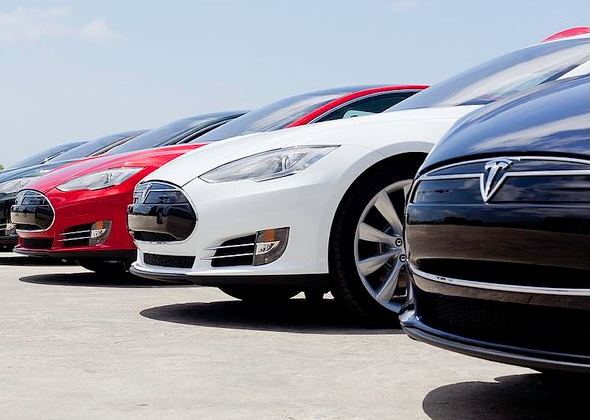Cars and Drivers
Is Tesla's Gigafactory Really Just Too Ambitious?
Published:
Last Updated:
There is no question that Elon Musk’s ambition is huge. His dream is for Tesla Motors Inc. (NASDAQ: TSLA) to build about 500,000 cars a year by the year 2020, all powered by lithium ion batteries produced at what is called its Gigafactory. The Gigafactory, projected as a $4 billion to $5 billion investment, is the key. The problem is that the expectations of the Gigafactory may be too ambitious to finish by 2020, and they may simply be too ambitious period.
Barron’s also raised the issue over the weekend, but their take was yet again how Tesla’s stock is overpriced. Our view here is simply on how realistic Tesla’s ambition for its Gigafactory is. Many issues hang in the balance.
Tesla’s Gigafactory is ultimately supposed to employ 6,500 people and be powered by solar and wind power on a site projected at some 1,000 acres. The factory would single-handedly double world output of lithium-ion units.
The company is looking at sites in four southwestern states: Nevada, Arizona, New Mexico and Texas. All four are weighing huge incentives to win the project.
But the Gigafactory faces big headwinds. Here are some key questions:
Can it get the partners? Tesla plans to put $2 billion into the project. It needs partners willing to pony up the rest. One obvious partner choice is Japanese electronics giant Panasonic, which supplies the battery cells that Tesla uses to make the batteries that power its vehicles. Panasonic already has agreed to provide almost 2 million cells for Tesla’s Model S sedan and Model X, a crossover SUV, during the next four years. But Panasonic CEO Kazuhiro Tsuga would not commit to joining the project. It is weighing the risks, perhaps thinking more about the competition rather than the opportunity.
Can Tesla really sell 500,000 cars a year? The company sold about 22,500 vehicles in 2013 and is expected to sell 35,000 in 2014. It is just entering the Chinese market this year. Tesla’s plans include building a car that retails for $35,000, compared with $70,000 or so for the Model S.
Can it overcome the political obstacles? While the state governments in Nevada, Arizona, New Mexico and Texas are trying to come up with winning incentives, they may face opposition from existing businesses.
Can Tesla get the raw materials? Tesla says it wants to source its raw materials in the United States. Two key commodities on its shopping list are graphite and cobalt. Neither, however, is mined in the United States. There are proposals to mine cobalt at sites in Idaho and Minnesota, according to Bloomberg News. Most of the world’s graphite comes from China, which is shutting down many mines because of environmental problems. Most of the world’s cobalt comes from the Democratic Republic of Congo, which has been ravaged by civil war for years. Tesla says it gets its cobalt from a Philippine mine.
Can it get its raw materials without causing shortages? Tesla thinks the Gigafactory’s scale is so great that it would drive down lithium-ion battery costs by at least 30%. This expectation assumes that raw materials availability to ramp up to meet the demand. Analysts are skeptical. The cobalt requirements alone would cause a global shortage, Stuart Burns, co-founder of Chicago-based pricing and analysis company Metal Miner, told Bloomberg.
Maybe the Gigafactory will come in on time. Maybe it will deliver on all its promises. But there are enough questions that exuberance may prove costly for investors. Indeed, Tesla’s shares were down 2.4% on Monday to $207.27.
Retirement planning doesn’t have to feel overwhelming. The key is finding expert guidance—and SmartAsset’s simple quiz makes it easier than ever for you to connect with a vetted financial advisor.
Here’s how it works:
Why wait? Start building the retirement you’ve always dreamed of. Click here to get started today!
Thank you for reading! Have some feedback for us?
Contact the 24/7 Wall St. editorial team.